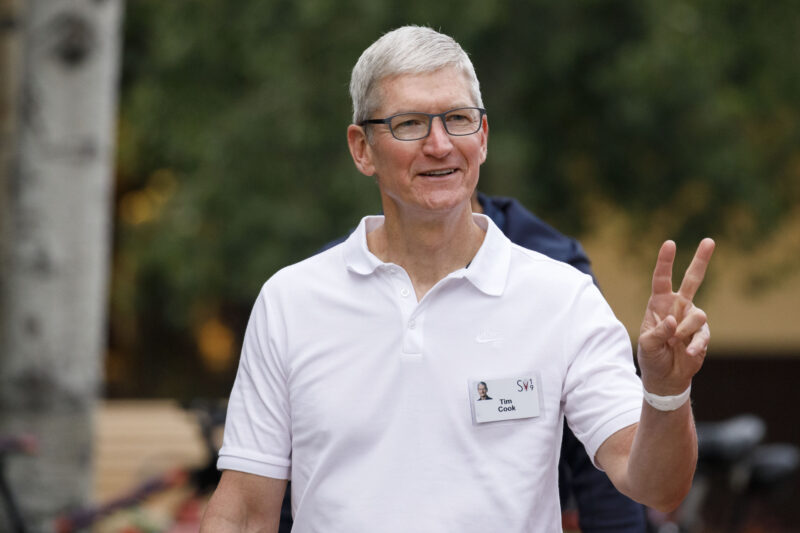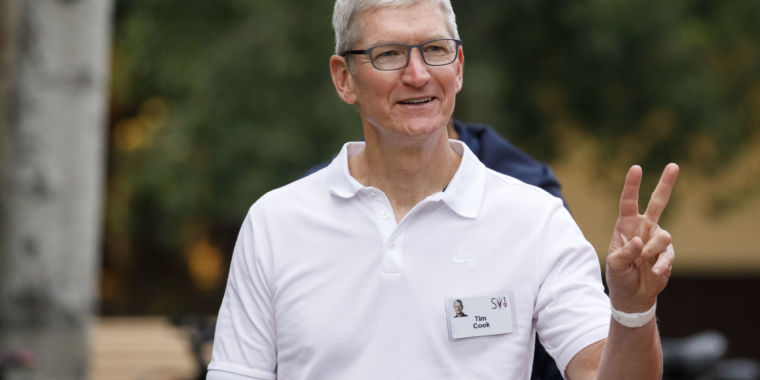Q4 Earnings —
Supply shortages led Apple to miss investors’ and analysts’ expectations.

Enlarge / Apple CEO Tim Cook.
In its quarterly call with investors today, Apple revealed that its revenue grew in all of its businesses and product categories, but the numbers weren’t enough to impress investors, who were expecting even bigger gains.
The company’s overall revenue grew by 29 percent to $83.36 billion, with iPhone revenue seeing the biggest growth at 47 percent year over year at $38.87 billion.
Services revenue came in at $18.28 billion, for 24.6 percent growth. The Mac managed $9.18 billion for 1.6 percent, and the iPad $8.25 billion for 21.4 percent. “Other products,” which includes the Watch and AirPods, grew 11.5 percent to $8.79 billion.
Analysts had predicted slightly greater growth across the board. CEO Tim Cook claimed that global supply shortages in silicon to the tune of $6 billion, as well as COVID-19-related manufacturing problems in Asia, led the company to slightly miss the desired mark.
Apple has not provided explicit guidance on its upcoming quarters since the pandemic began, so we do not have Apple’s own predictions to compare the results against.
It’s important to note that this quarter only included a few days after the iPhone 13 launch. Much of the iPhone 13-related revenue will come next quarter.
In fact, Cook signaled to investors that he expects the next quarter to be a big one. He said he expects “solid” growth in year-over-year revenue, and Apple believes the upcoming quarter will be its biggest yet.
This is in spite of the fact that the supply problems are expected to get worse, not better. Analysts agree that Apple will almost certainly not be able to produce enough iPhones to meet demand during the quarter.
Apple has seen massive sales and revenue growth for all of its product categories during the pandemic as consumers have spent less on travel or going out and more on personal technology for home, work, school, or fitness. But this is the first time the company has missed estimates in more than five years.







